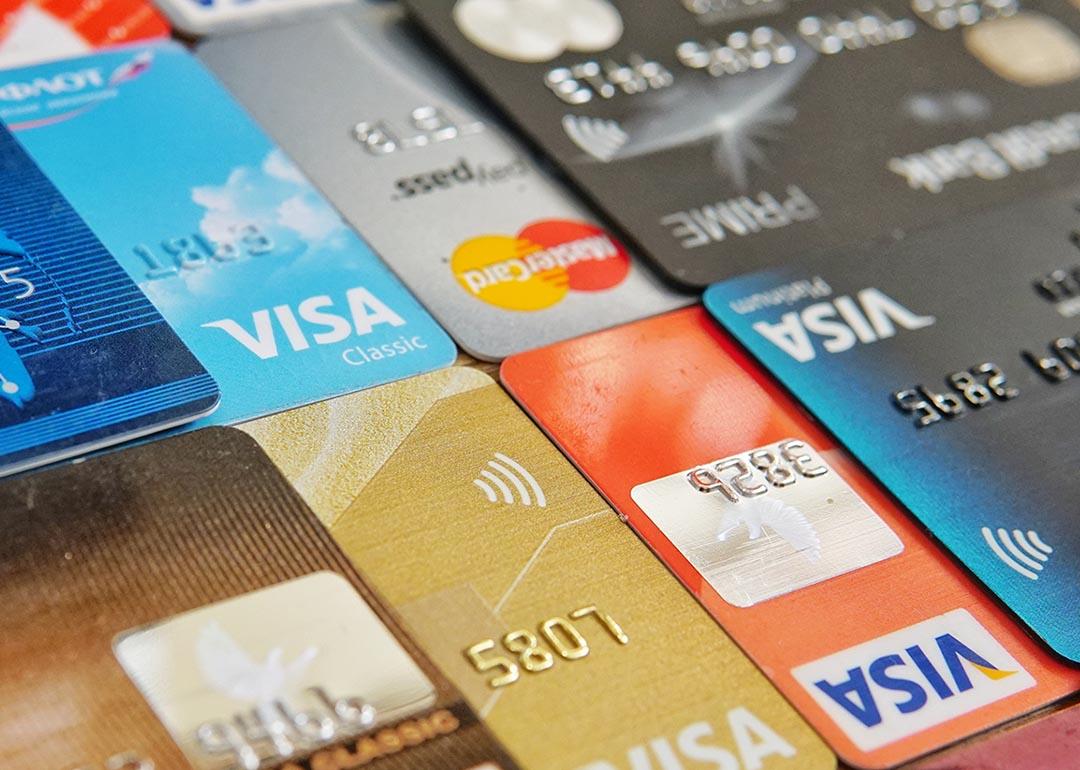
This story was produced by BestCards and reviewed and distributed by Stacker Media.
5 credit card myths debunked
Credit cards play a huge role in one's credit score. Because of that, you should never take your credit card knowledge for granted. Plenty of resources exist to help you learn about credit cards, but often, these sites fall into the trap of common credit card myths. BestCards breaks down and debunks five common myths about credit cards.
The credit card might seem like a very modern tool, but credit cards have been around since the 1950s. Because of that, the popular payment option has added time to pick up a few myths here and there.
However, credit cards have come a long way since their conception. We have numerous credit cards that fit consumer needs and offer lucrative reward-earning potential. However, the evolution of the modern credit card has left us with a few myths in need of debunking. After all, faulty information can negatively affect your credit score.
1. Applying for a new credit card will drastically hurt your score
Perhaps the most prevalent credit card myth relates to your credit score when you apply for a new card. Will applying for a new credit card severely impact your credit score? The short answer is no, but you should expect a small "ding" to your credit score.
When you apply for a new credit card, lenders perform a hard inquiry on your report to pull your credit history. The hard pull may knock off a few points on your credit score, but it is nothing major to worry about.
Each hard inquiry can stay on your credit report for up to two years but shouldn't affect your score for more than one year. In most cases, the effect on your score will roll off in a few months. Getting a new credit card can improve your credit score. This is because it increases your available credit and improves your credit utilization ratio.
That is, of course, if you continue to use all your credit cards responsibly. Credit usage accounts for 30% of your FICO score. In contrast, hard inquiries or new credit applications only account for 10% of your score.
2. Carrying a credit card balance will improve your credit
Another common myth states that carrying a balance is good for your financial health. Again, there is some truth to this rumor, but, you don't need to carry a balance on your credit card to build credit.
Having a balance on your credit card doesn't directly affect your credit building, despite what people think. This myth often leads people to believe that they need to maintain a revolving balance to show creditworthiness. However, carrying a balance only results in unnecessary interest charges.
To build credit effectively, making regular payments in full and on time is essential. This demonstrates financial responsibility and shows lenders that you can manage credit responsibly. Paying off your credit card balance in full each month is the best practice to avoid interest and maintain a healthy credit score.
Experts recommend keeping a low credit utilization ratio – under 30%. It shows lenders you're responsible with your available credit. When you carry a credit card balance, it lowers your available credit and increases your debt.
This action negatively affects your credit utilization ratio and lowers your credit score. Hence, this is why carrying a balance is not the best strategy to boost your score.
3. Having multiple credit cards is harmful to your credit score
Having more than one credit card is okay if you use them responsibly. But don't go overboard.
Remember, if you don't use your credit card, the issuer may close it, impacting your credit score. Apply only for what you need and what you can manage responsibly. It might get dicey if you apply for multiple credit cards within a short period. Spacing out your credit card applications for best credit practices is best.
4. Missing your payment will automatically harm your credit score
Missing a credit card payment is not a good habit. However, a missed credit card payment will not always instantly affect your credit score. Credit card issuers typically will not report the missed payment if it is less than 30 days late.
You should always check with your credit card company on their processes for late payments. Although they may agree not to report the late payment within a certain period, you might still get a late fee. Card issuers often waive the late fee if it's your first time missing a payment.
5. Credit cards are for emergencies only
One of the most prevalent myths about credit cards is that they are only good for emergencies. Some people overlook the everyday benefits of credit cards and think they should only use them in emergencies. While credit cards can certainly be helpful during unforeseen circumstances, they offer much more than just emergency funds.
Credit cards provide convenience and protection for online purchases, travel bookings, and rental car reservations. They often come with added benefits such as purchase protection, extended warranties, and fraud liability protection. Use credit cards for daily expenses, pay them off quickly, and enjoy benefits while establishing good credit.
Why exposing credit card myths helps your finances
Credit cards are powerful financial tools that, when used responsibly, can provide convenience, security, and valuable rewards. Popular misconceptions about credit cards may obstruct your focus on the things that do matter. Knowing credit card facts helps you make informed decisions about your finances and how they impact your life.
To handle your credit cards well, pay on time, use less credit, and pick the right card for your needs. By doing this, you can confidently use credit cards. You can also build a good credit history. Additionally, you can access better financial opportunities and credit card offers, including rewards, statement credits, and 0% intro APR offers.



